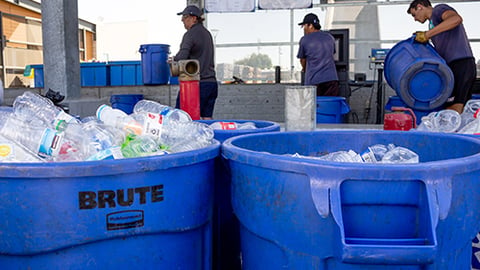Grocers in California Move Closer to Mandatory Food Recycling
Composting is more than a New Year’s resolution for Californians as the calendar year turns. Starting Jan. 1, residents and businesses in that state – including grocers – will begin complying with a mandatory organic food waste recycling program.
Through this program, residents will dispose of organic food waste such as fruit and produce, coffee grounds and eggshells, in green bins that are collected by municipalities’ trash services. The waste will be converted into compost or, depending on a municipality’s infrastructure, used to create energy in the form of biogas generated by anaerobic digesters.
Food retailers are significantly impacted by the mandate as well. Starting on Jan. 1, California grocery stores will be required to give excess food that would otherwise be thrown away to community food banks or other food distribution organizations. Other businesses, including restaurants, hotels and schools, have until 2024 to divert food scraps from landfills to food programs for those in need.
“This the biggest change to trash since recycling started in the 1980s,” Rachel Wagoner, director of the California Department of Resources Recycling and Recovery, told the Associated Press.
California is the second state to pass such food recycling laws, following Vermont’s lead. According to the U.S. Environmental Protection Agency, about a third of the food produced in this country is never eaten. The World Wildlife Federation reports that food waste represents about 10% of global greenhouse gas emissions, nearly four times larger than emissions produced by the global airline industry.






